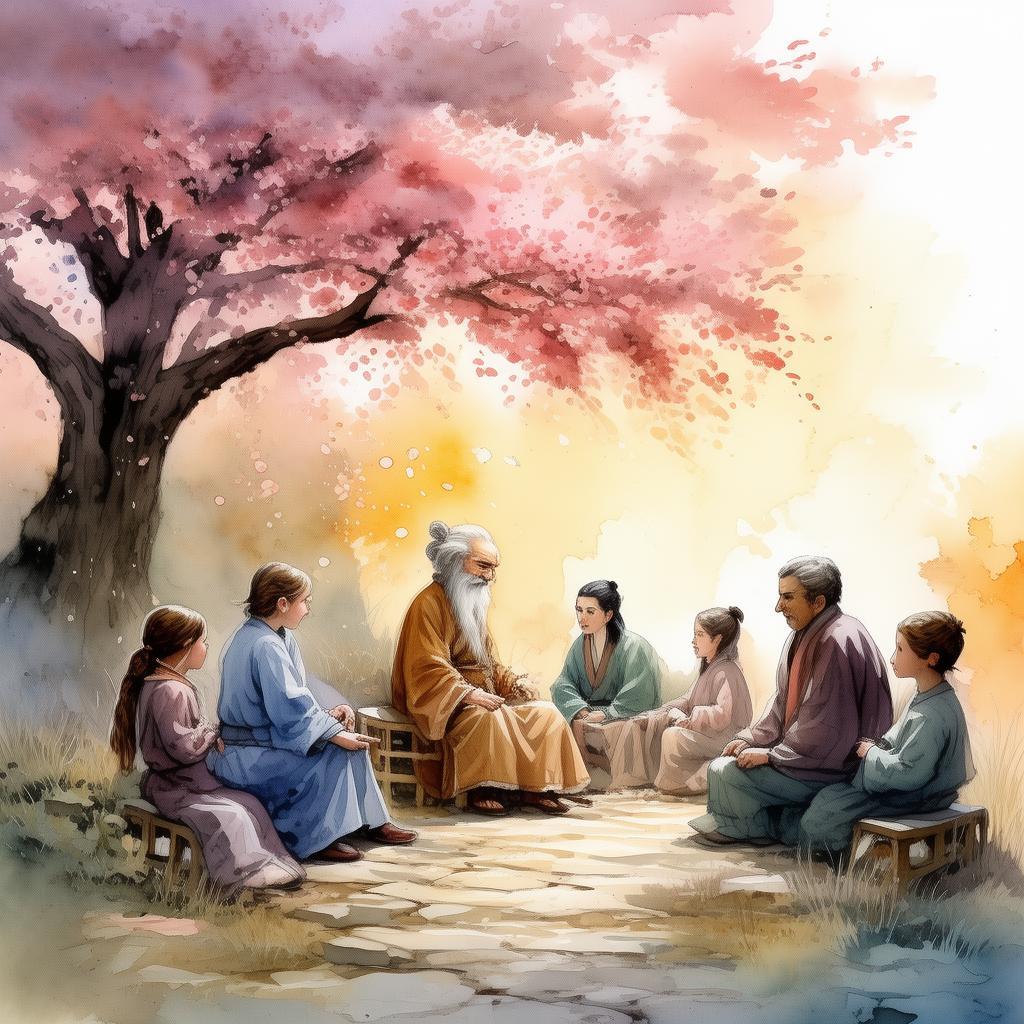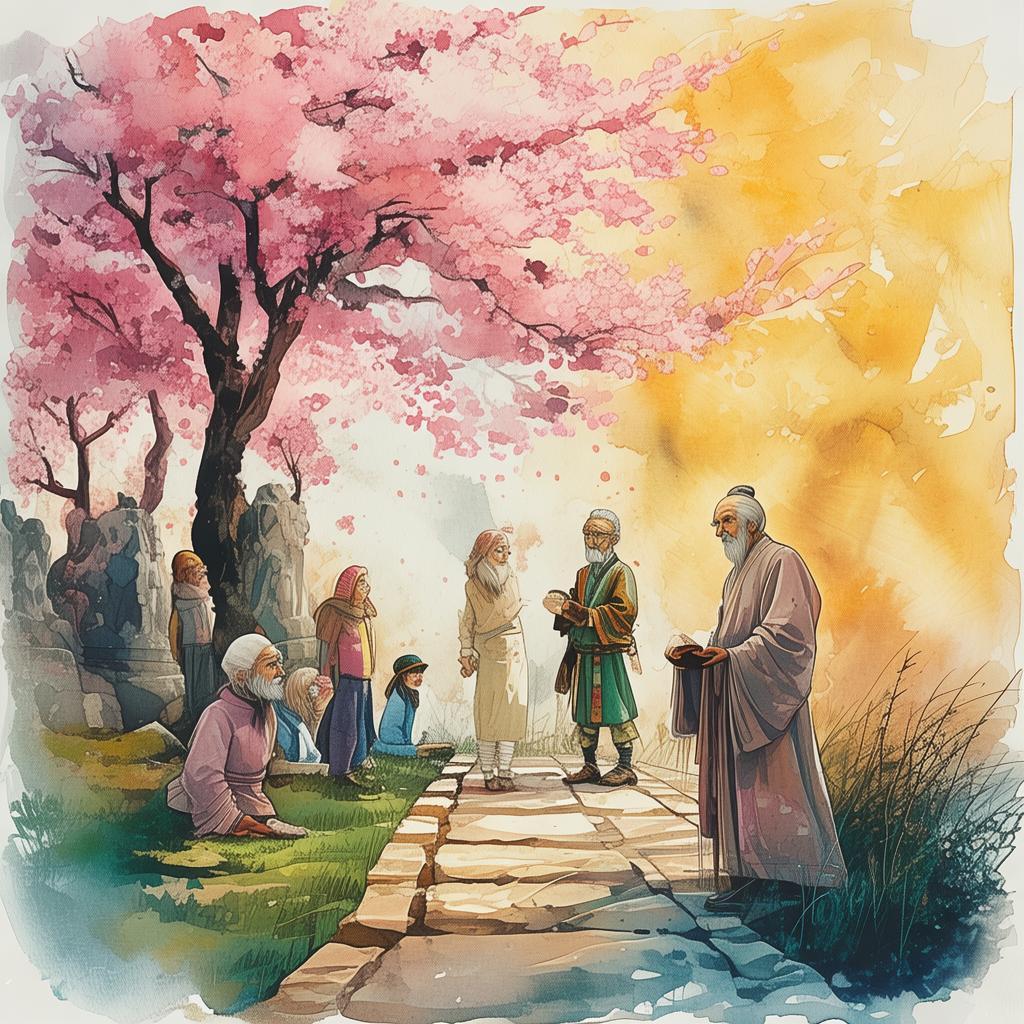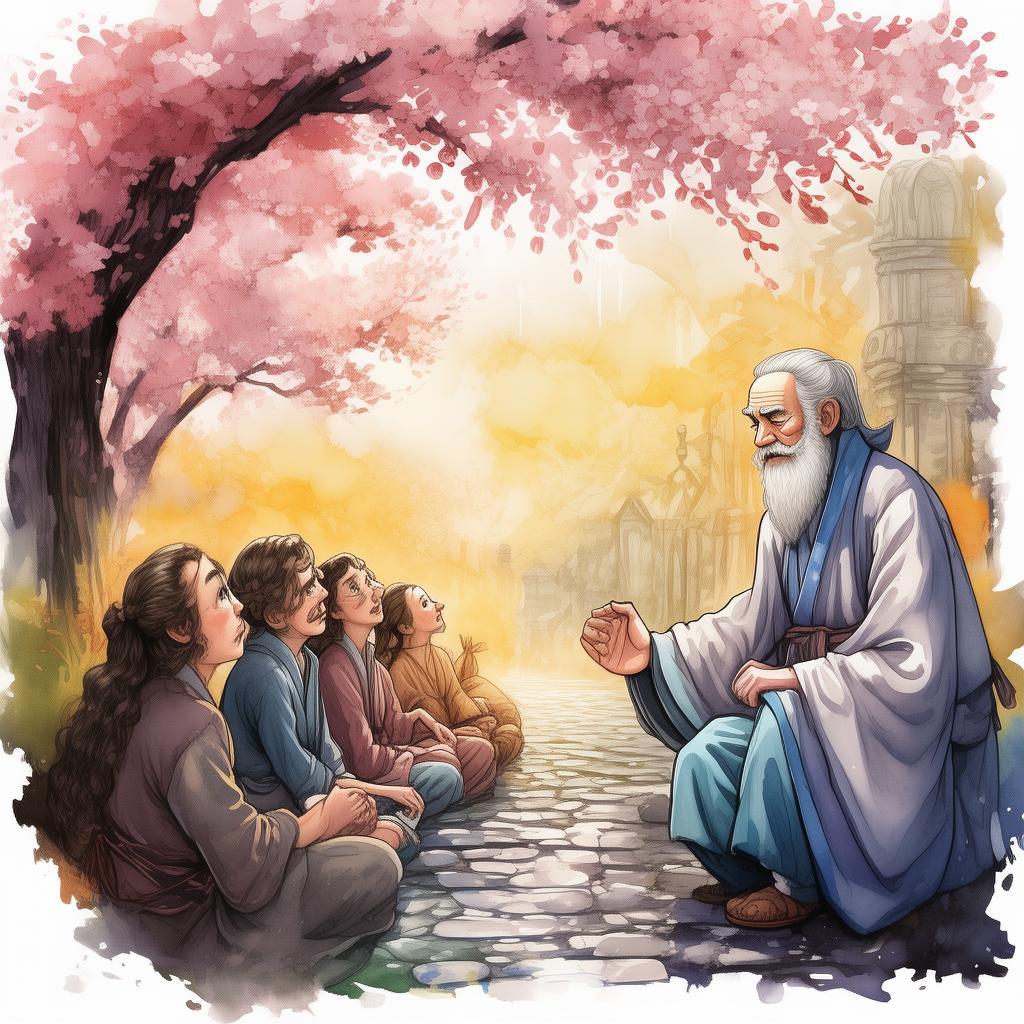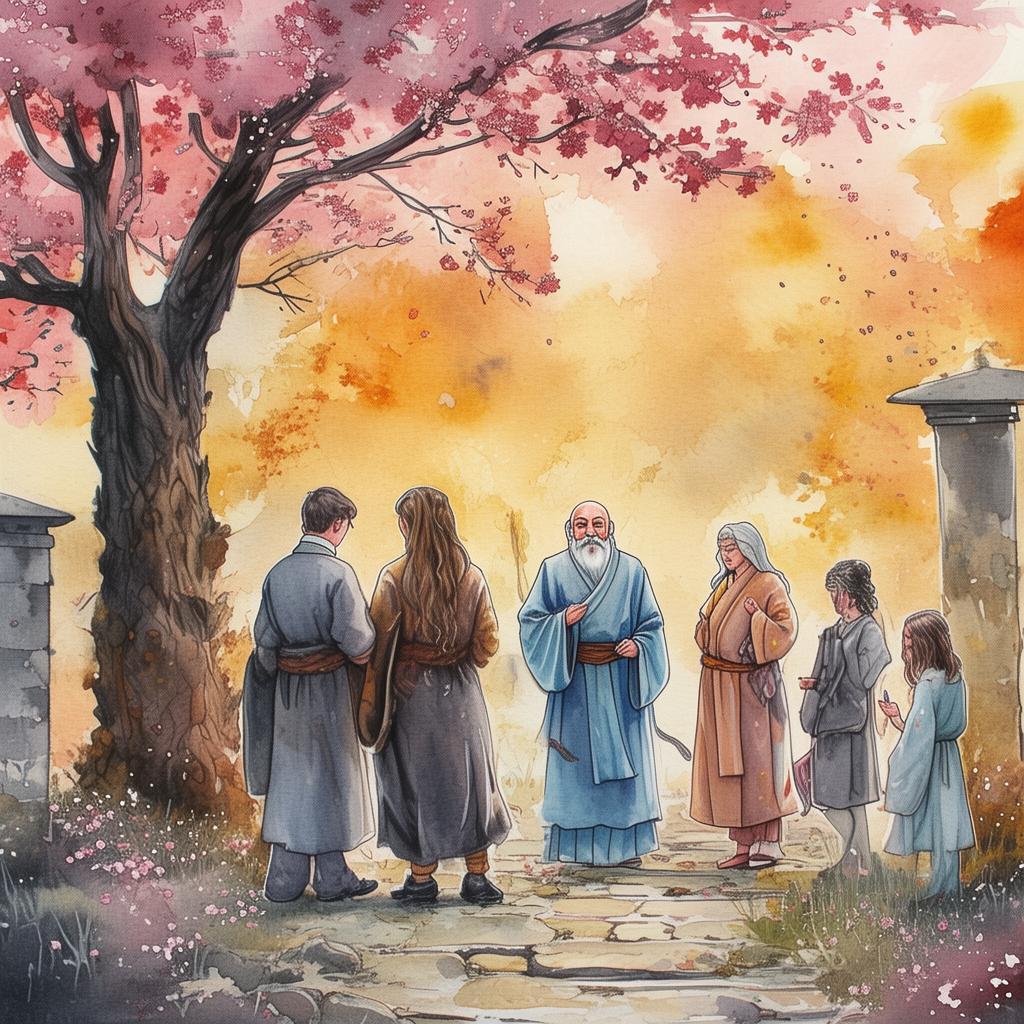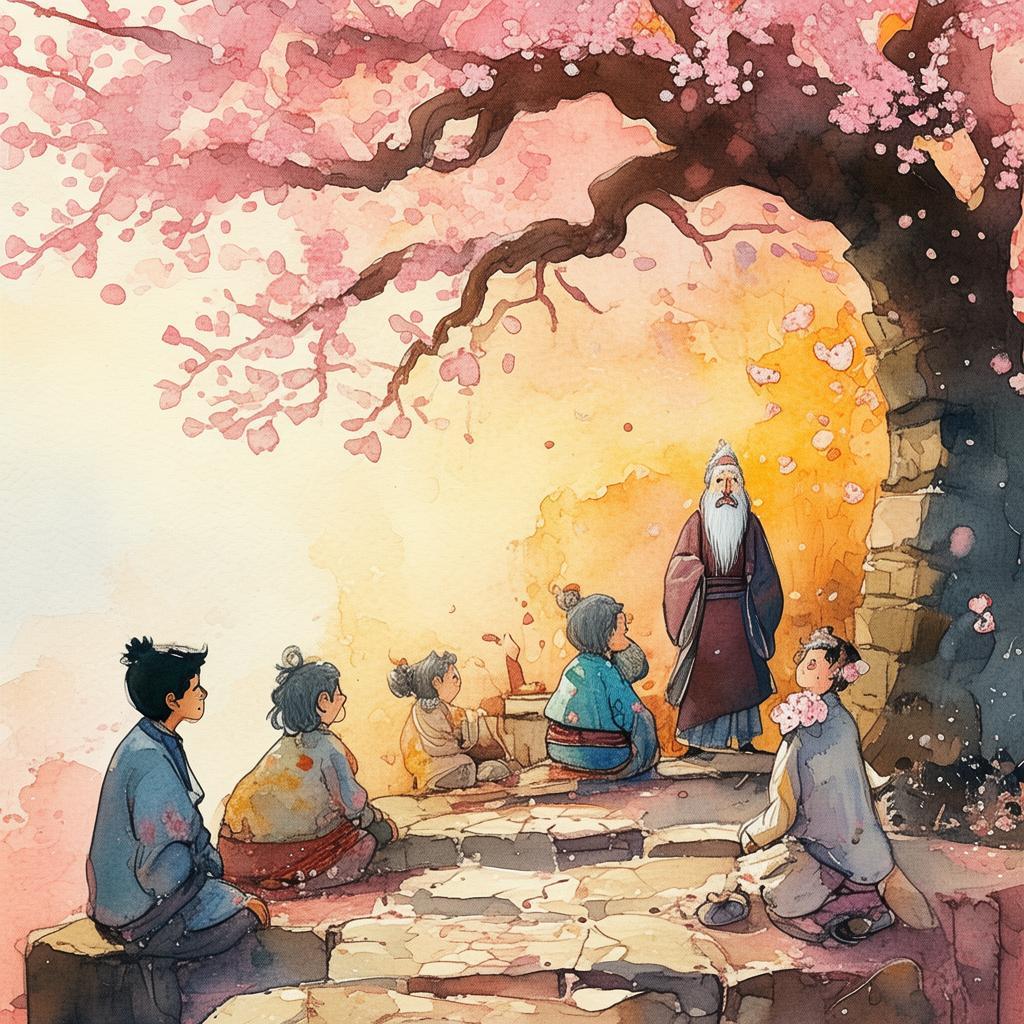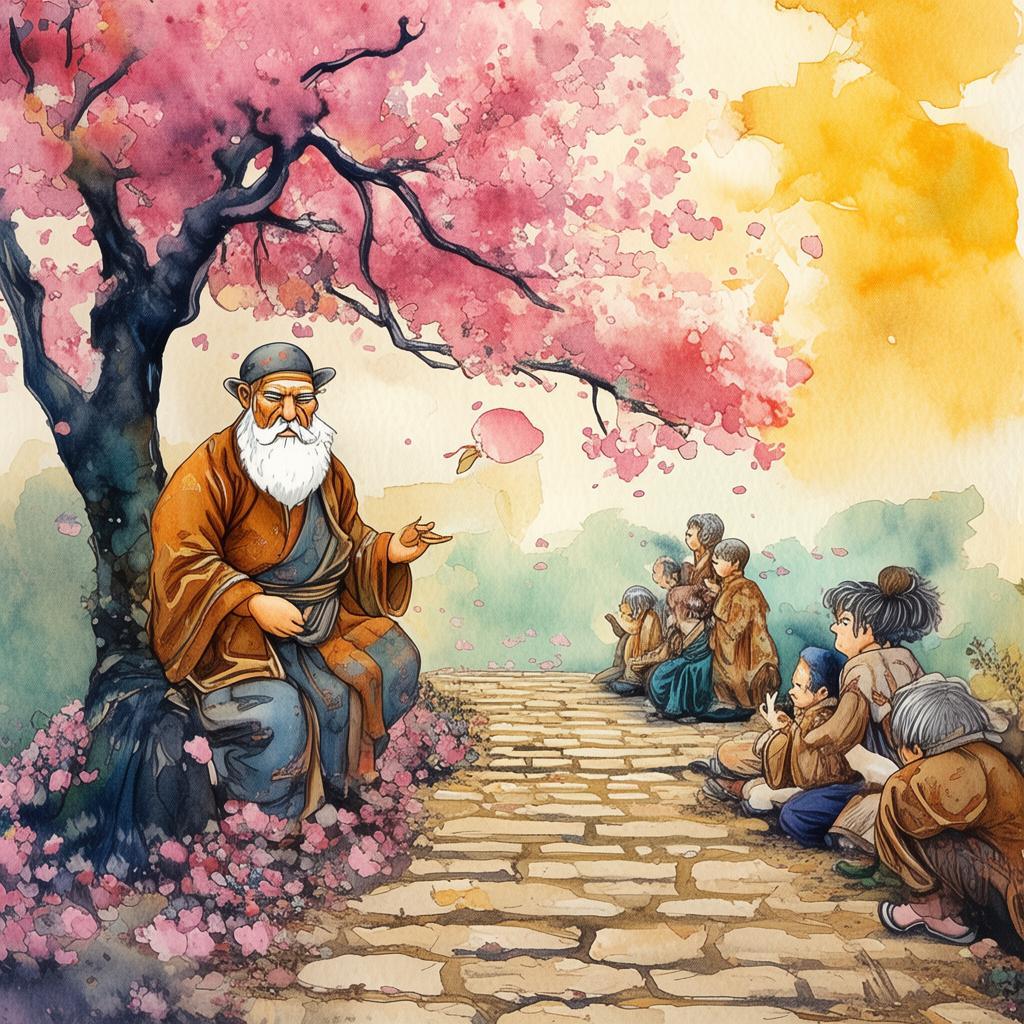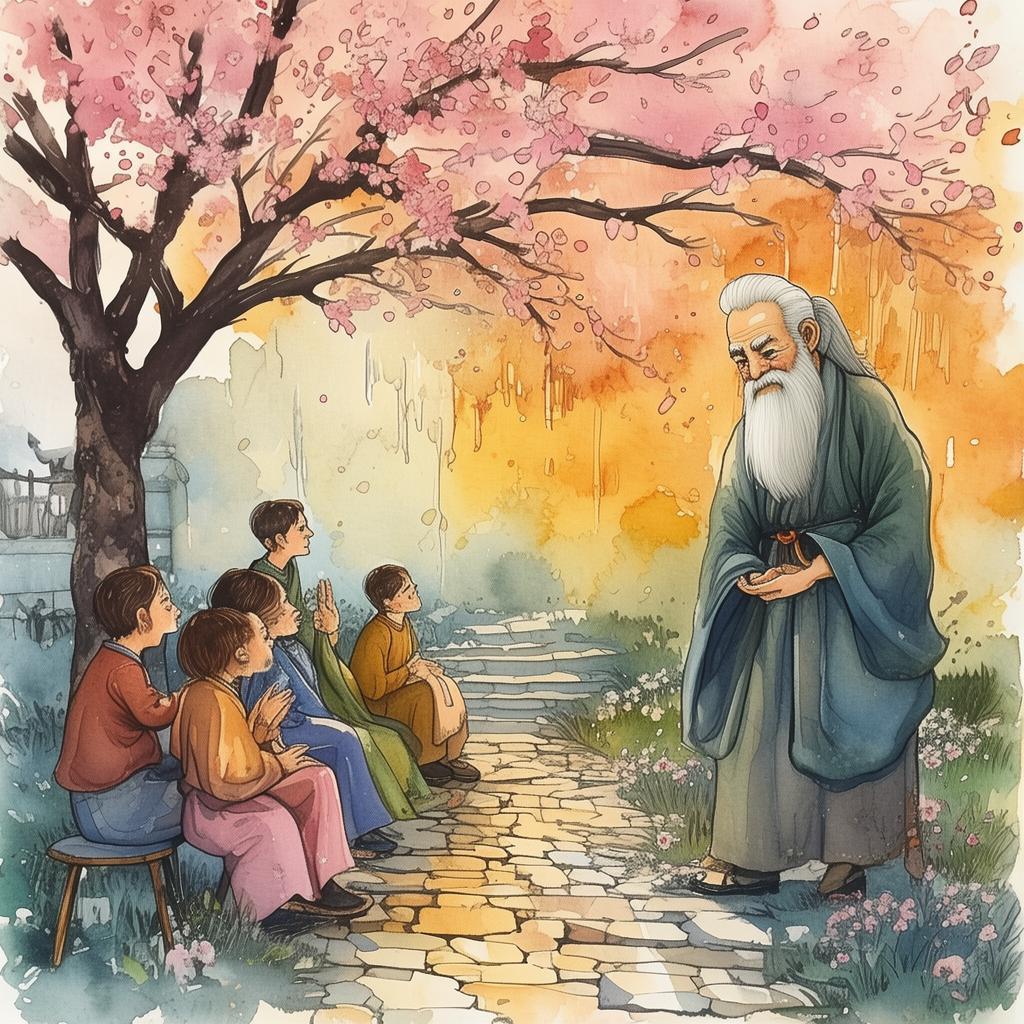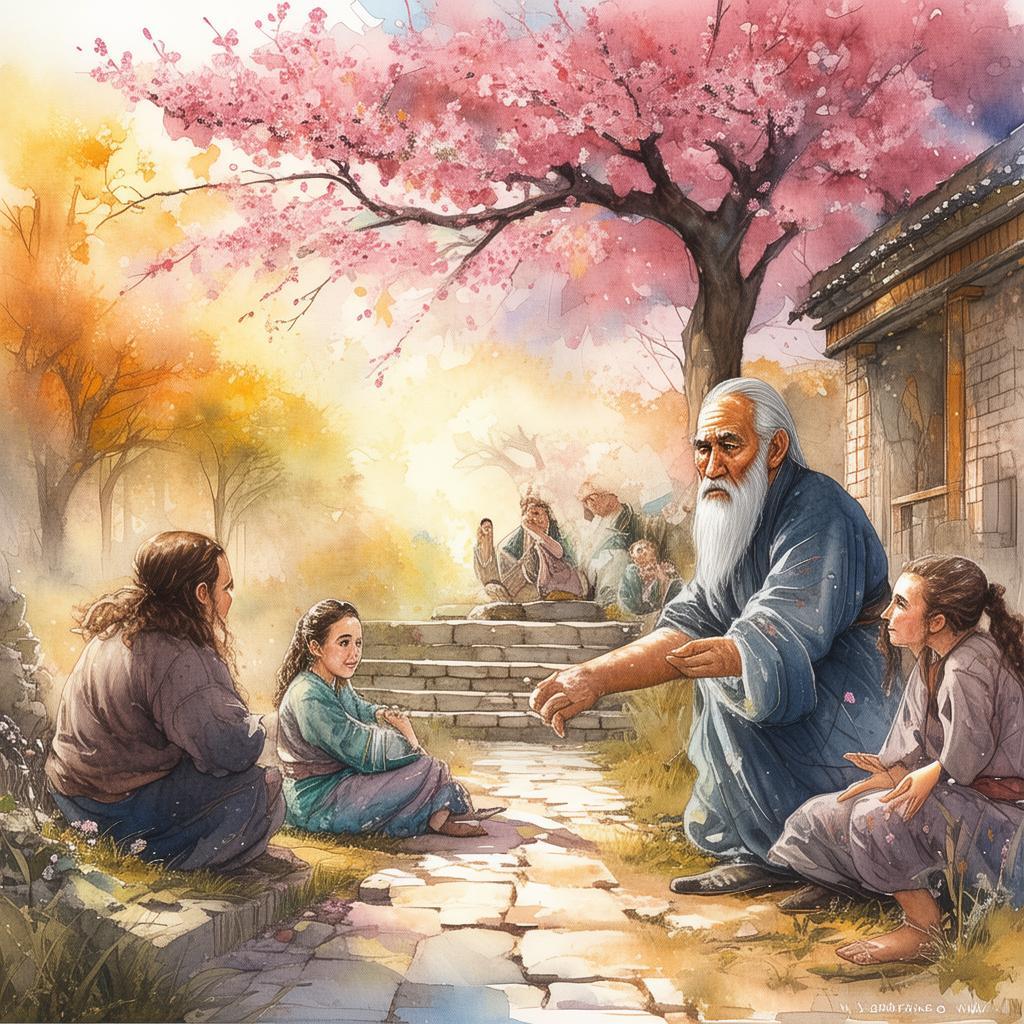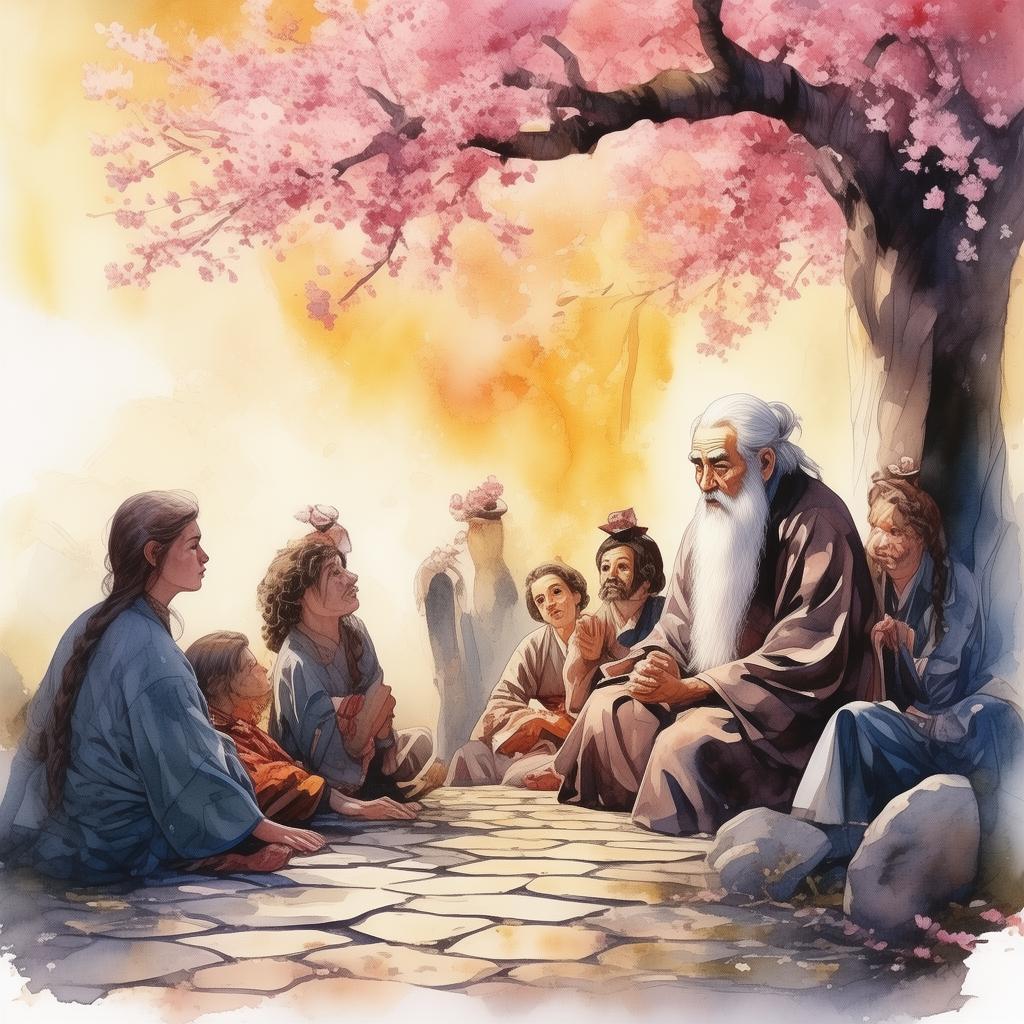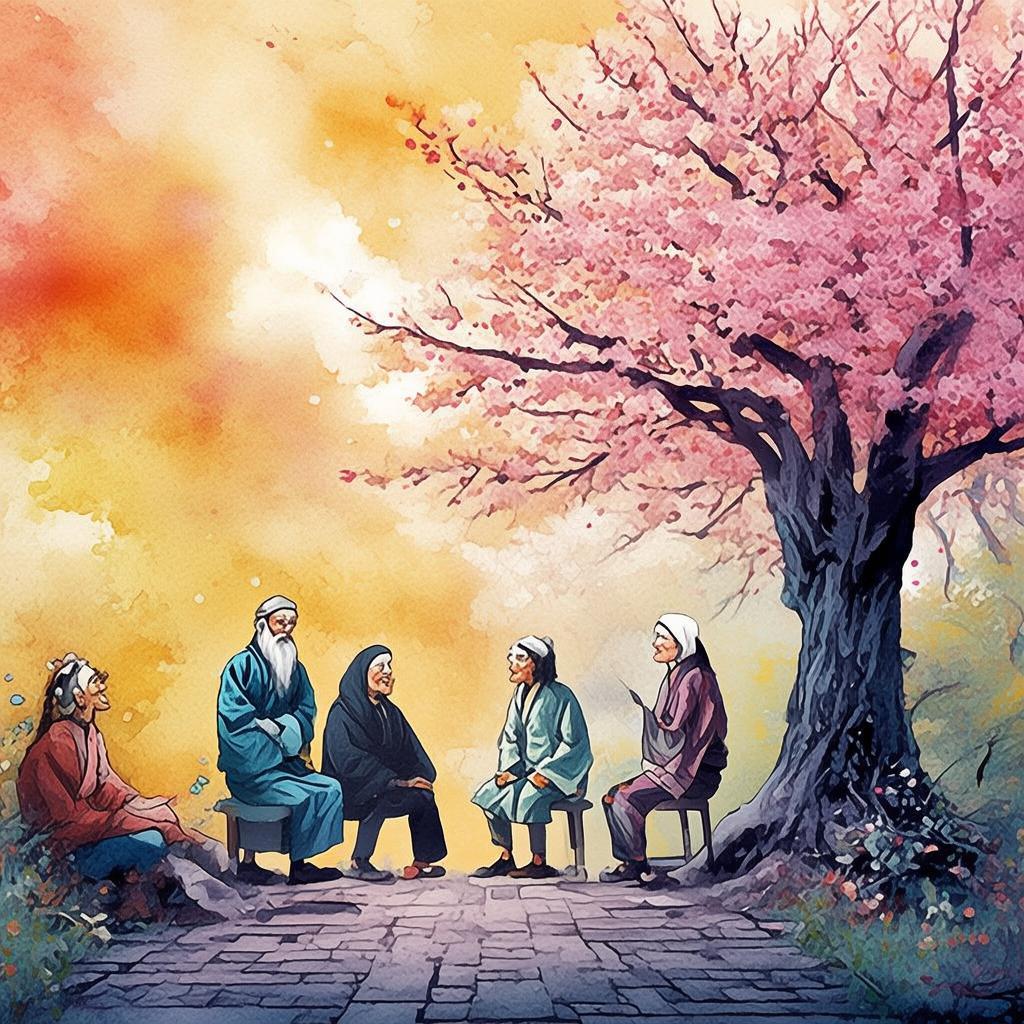The Chessboard of Destiny: The Unfair Game
In a world where fate was written on a chessboard, every move was a step towards destiny. The pieces were people, and the board was life itself. In this world, there was a game, a game of life and fairness, where the rules were as immutable as the stars in the night sky.
Once there was a young man named Wei, a chess prodigy whose every move was as calculated as the game he loved. He lived in a small village that was known for its wisdom and fairness. Wei's father, a local sage, had taught him that every action had its consequence, and that fairness was the only path to true peace.
One day, as Wei sat in his father's study, a mysterious figure named Master Feng entered. His eyes glowed with an ancient wisdom, and his voice was like the rustle of leaves in the wind. "Young Wei," he began, "the game of life is a game of chess. You must play wisely, for every move you make will shape your destiny."
Master Feng handed Wei a small, ornate box. Inside was a chess set unlike any he had ever seen. The pieces were intricately carved, and the board was adorned with strange symbols. "This is the Chessboard of Destiny," Master Feng explained. "It is a mirror to your life. The moves you make on this board will determine your fate."
Wei was intrigued, but he was also wary. The idea of his life being nothing but a game was unsettling. He took the chess set and studied it for hours, trying to understand its secrets. Then, he decided to play a game with himself, using the board to simulate his life's choices.
As Wei played, he found himself facing difficult decisions. Should he follow the path of wisdom and fairness, or take a chance for a bigger reward? The game was a mirror, reflecting his own desires and fears. With each move, Wei felt his destiny shifting, and he realized that the game was not just about winning or losing, but about the kind of life he wanted to live.
One day, Wei's father fell ill. The local healers could do nothing, and Wei was left with a choice: he could use the Chessboard of Destiny to win a fortune and pay for the best treatment, or he could follow the path of fairness and hope for a miracle.
Wei's heart was heavy as he looked at the chessboard. He knew that using the board for his own gain would be the easy way out, but it would also be the path of least fairness. He hesitated, then decided to trust in the fairness of life.
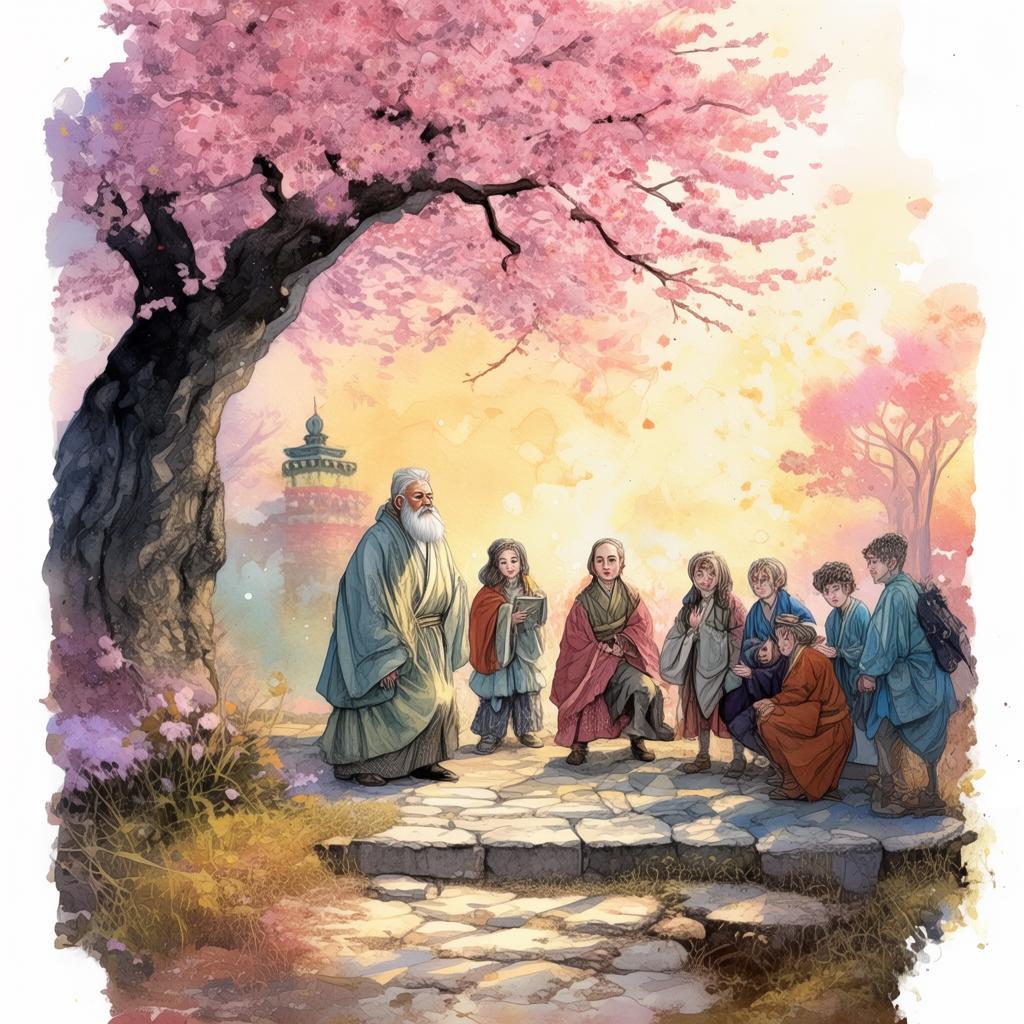
He sold his most valuable possession, a family heirloom, to pay for the best treatment. His father recovered, and Wei learned a valuable lesson about the true meaning of fairness. He realized that the Chessboard of Destiny was not just a game; it was a reflection of the choices he made in life.
Years passed, and Wei's village was faced with a great crisis. A powerful tycoon wanted to build a factory that would pollute the land and destroy the local way of life. The villagers were divided, some wanting to fight for their land, others wanting to accept the tycoon's offer for a better life.
Wei knew that the Chessboard of Destiny was the only way to make a fair decision. He set up the board and began to play, his heart heavy with the weight of the village's future. As he played, he realized that the tycoon's offer was a temptation, a chance to win a big prize at the cost of fairness.
After much thought, Wei made a move that surprised everyone. He used the Chessboard of Destiny to propose a compromise that would satisfy both the tycoon and the villagers. The tycoon agreed, and the village was saved.
The villagers were amazed at Wei's wisdom, and they learned that the true power of the Chessboard of Destiny was not in winning or losing, but in using it to make fair decisions that would benefit everyone.
As Wei stood on the hill, looking out over his village, he felt a sense of peace. He had played the game of life and fairness, and he had won. He realized that the game was not about the moves he made, but about the kind of person he chose to be.
And so, Wei lived his life as a testament to the power of fairness, always using the Chessboard of Destiny to guide his choices and to remind him that in the end, the only game worth playing was the one where fairness was the ultimate winner.
✨ Original Statement ✨
All articles published on this website (including but not limited to text, images, videos, and other content) are original or authorized for reposting and are protected by relevant laws. Without the explicit written permission of this website, no individual or organization may copy, modify, repost, or use the content for commercial purposes.
If you need to quote or cooperate, please contact this site for authorization. We reserve the right to pursue legal responsibility for any unauthorized use.
Hereby declared.
